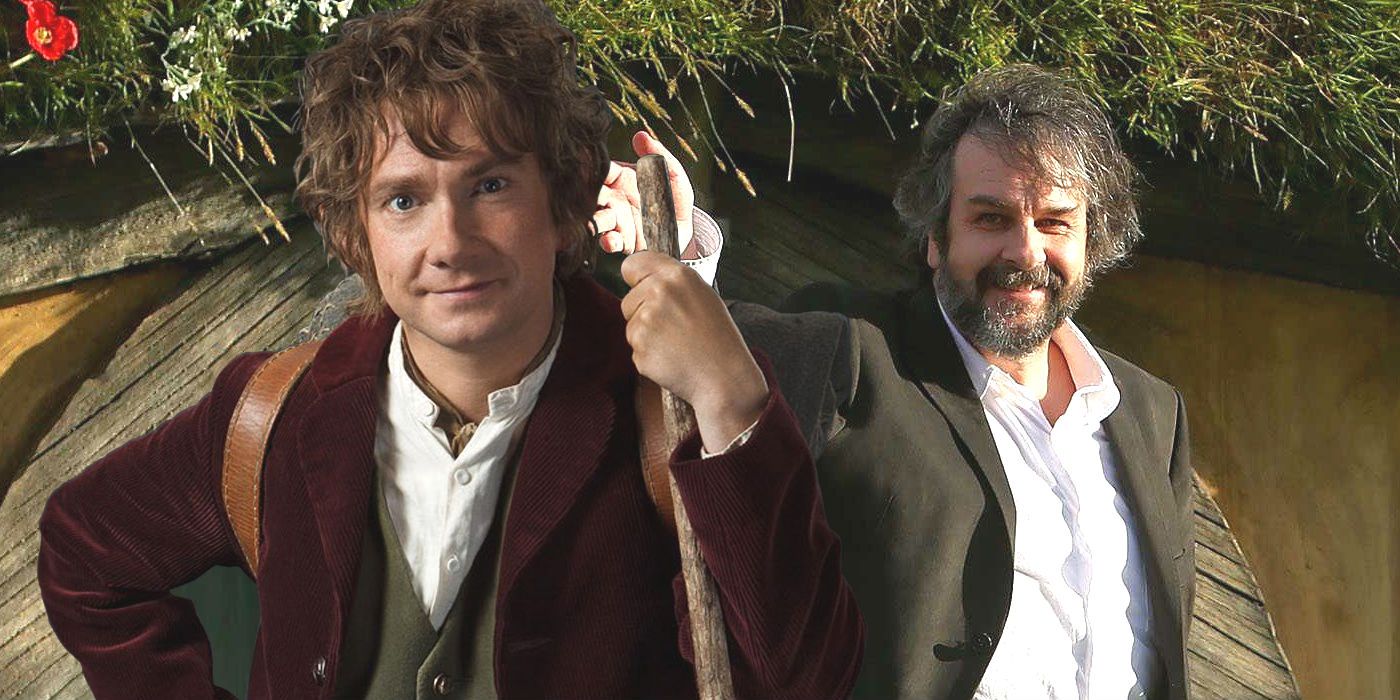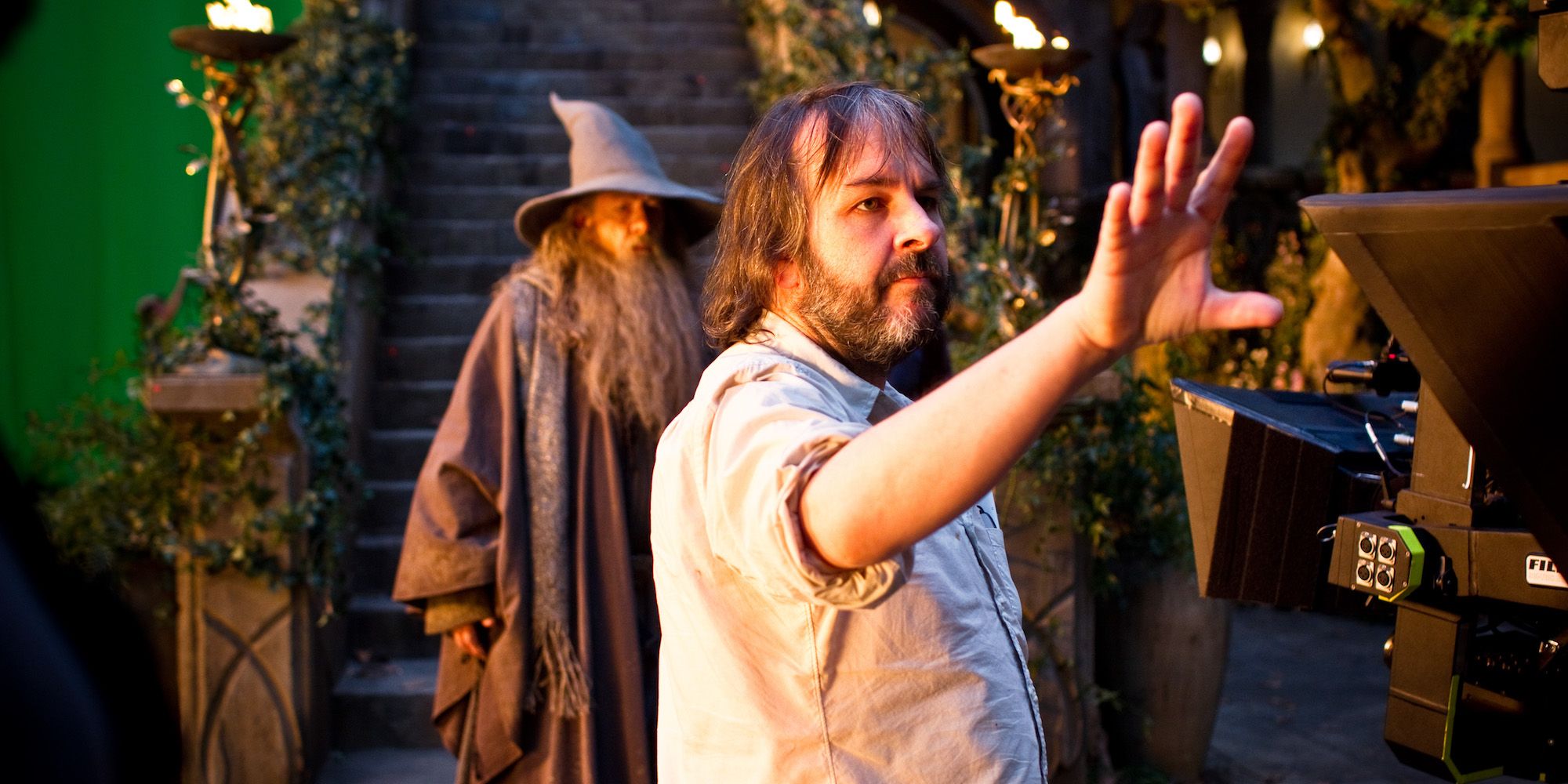Why was The Hobbit split into three films? Due to the phenomenal critical and commercial success of Peter Jackson's Lord of the Rings movies, it seemed like a matter of "when" not "if" an adaptation of The Hobbit would hit theaters. In truth, many were excited about the prospect of J. R. R. Tolkien's original Middle-earth adventure coming to the big screen; the story was certainly rich enough to stand on its own and more than warranted its own film.
That is "film" in the singular sense, rather than the trilogy The Hobbit eventually became. As soon as the three-way split was announced, fans immediately sensed a cynical cash grab on behalf of the studio - a repeat of the tactic used by Harry Potter, The Hunger Games and Twilight where a single book is split into several films under the guise of "doing justice to the story" while actually raking in more box office and eking out the source material. Peter Jackson has insisted this wasn't the case with the Hobbit trilogy, and although it's impossible to say exactly what motivating factors were in mind at Warner Bros. when the decision was made, the studio certainly benefited financially from putting out three films instead of one or two.
Jackson, however, claims that the idea to split The Hobbit into three parts came from him alone, with the director wanting Bilbo's story to not feel any less epic in scale compared to his original Lord of the Rings trilogy and proposing the adaptation of Tolkien's appendices and wider notes. On this occasion, Jackson's influence was curtailed by the presence of Guillermo del Toro, who was originally set to direct The Hobbit and staunchly believed (quite rightly in hindsight) that any more than 2 movies would feel bloated.
Del Toro ultimately left production on The Hobbit, directorial duties defaulted back to Jackson and the three-film concept was cemented, but while the move may not have been driven purely by financial gain, the truth of the matter isn't much more encouraging. In a documentary that appeared as a bonus feature on the home media release of The Hobbit, the celebrated director and his crew revealed that a disorganized production and a lack of planning time after taking over from del Toro played a part in turning the 300-odd page novel into a trilogy of movies.
Unlike on The Lord of the Rings, Jackson and the production team had next to no prep time, and filming was a frantic process with narrow deadlines being met on a day-to-day basis. In contrast to most filming schedules, Jackson also didn't have the actual story structure nailed down by the time cameras began rolling and, by the director's own admission, shooting began with no clear plan of where the footage would end up or exactly how it would be utilized in the finished product. This was especially true of the climactic The Battle of Five Armies fight scenes, where footage was simply "banked" to be worked into the script during editing.
These battle scenes began shooting in May 2012, but were cut short when Jackson decided to insist on a delay in order to rework the script and set a clearer plan for the path ahead. It's surely not a coincidence that the decision to move from 2 to 3 films was announced shortly after in July 2012. While it could certainly be said that a trilogy was always Jackson's desire, the lack of planning behind the scenes and self-confessed "wing it" approach to filming perhaps created a situation where condensing the story and the banked footage into a brisk two movies was a tougher ask that simply extending The Hobbit into a trilogy.
The extra movie may have eased pressure from a production point of view but, in broad terms, wasn't received well by audiences. Despite the flaws of the Hobbit trilogy, the fact that Peter Jackson and his production team managed to turn in a workable, high-quality trio of films under such enormous pressure and impossible time constraints is a miracle worthy enough to rival Frodo's destruction of Sauron. Given the conditions placed upon it, The Hobbit had no right to be as good as it was, even if Bilbo's story couldn't come close to the heights scaled by the original Lord of the Rings trilogy.


